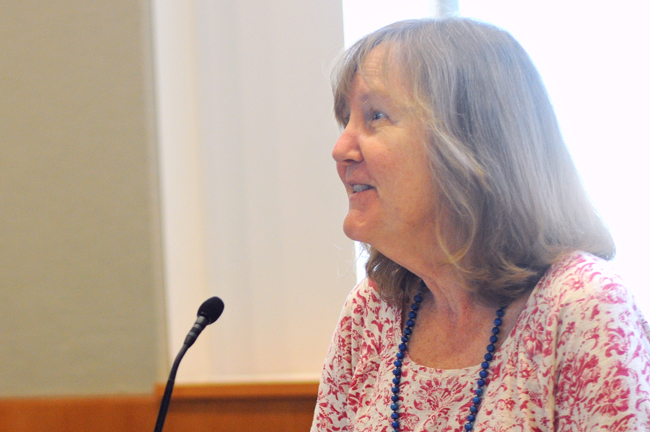A panel of open access experts asked attendees to consider why open access should be an issue on the forefront for university faculty and students Tuesday as a part of UT’s Open Access Week.
Since the National Institutes of Health implemented an open access policy for its research in 2008, similar policies have become more widely adopted and there has been a stronger push for open access research journals. At the Open Access & The University panel, hosted by UT Libraries, discussion was structured to help students and faculty understand their options for open access publishing and why this issue should be brought to the forefront at the University.
“We’re definitely in a transition period,” said Georgia Harper, UT librarian and copyright law attorney. “Publishers have realized [public access] is not the end of what we do, but a transition of what we do. [Public access] has so much value for not just academics, but for people who are on the front lines, like engineers. Same with nursing, same with law, same with any field.”
Many researchers are faculty employed by universities. These researchers often apply for funding from public institutions, which taxpayers – who cannot access the research without a subscription – indirectly support. Once research is completed and submitted to a journal, the researcher must sign away their copyright rights to the journal. Editors and peer reviewers then volunteer their time to the journals for free. Despite all of the free labor and obtained work, journals then sell their publications at consistently inflated prices, Digital Repository Librarian Colleen Lyon said.
“That’s the issue that a lot of people have with the current publishing system,” Lyon said. “It’s inherently unfair. When you do public access, the research becomes accessible by everybody, not just people with subscriptions.”
Panel members also noted the value of open access in accommodating people at universities or in other countries without the same access to the amounts of information that is available through UT libraries and databases.
“I understand that we need to publish in peer review journals, but the dissemination process is difficult when not everybody has access to expensive publications,” Maria Esteva, a Texas Advanced Computer Center research associate, said in the panel. “Especially when you work with people of other countries.”
One way to make public access a reality for research journalists might be to shift from the selling of publications to creating submission fees for researchers. To accommodate this, many universities, including Texas A&M, have created funds to support faculty in publishing to open access journals. Such a fund does not exist at UT at this time. Meanwhile, each year UT libraries must subscribe to less research content because of rising research journal costs, Lyon said.
“The thing that’s most sad about the situation is how few people know anything about it,” Harper said. “Be an advocate. Tell other people who don’t know. And there’s so much that has been given freely of people for us to use. Take advantage of it. Search for it.”





















